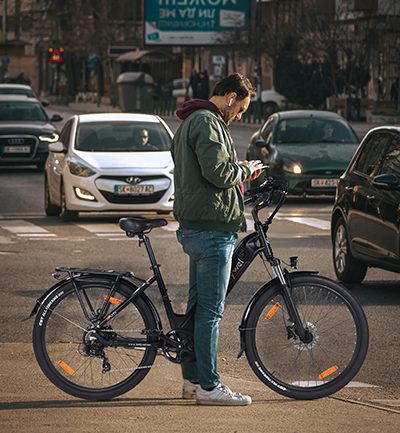Type of e-bike: There are different types of e-bikes available in the market, including road e-bikes, mountain e-bikes, commuter e-bikes, and folding e-bikes. Decide which type of e-bike suits your needs best.
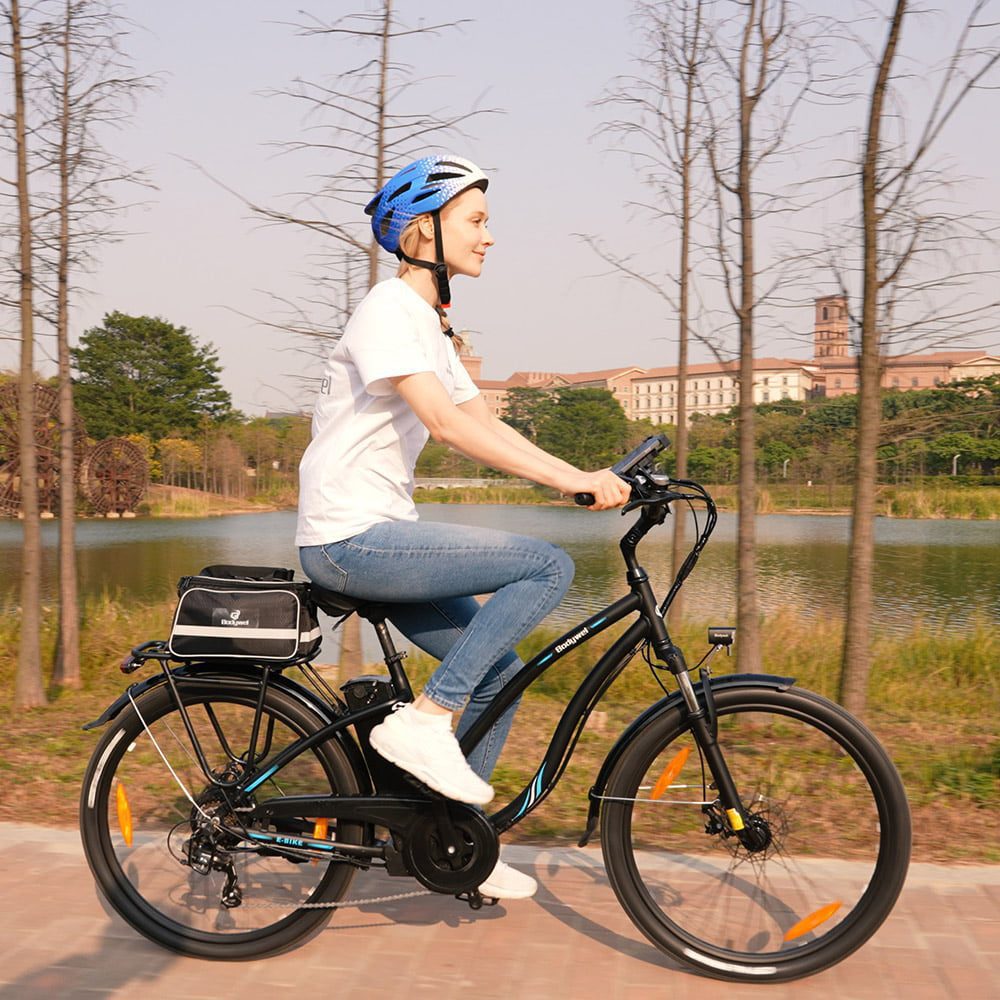
Bodywel 26inch Commuter Electric Bike
Motor power: The motor is the heart of the e-bike. It is essential to choose an e-bike with the right motor power that meets your needs. The power of the motor is measured in watts, and the higher the wattage, the more powerful the motor.
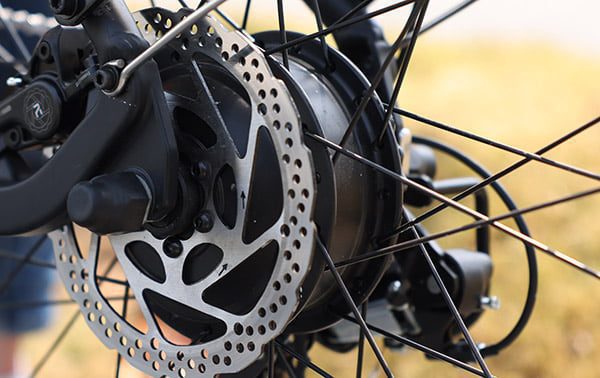
Electric Bike Motor
Battery capacity: The battery is another crucial component of an e-bike. The battery’s capacity is measured in watt-hours (Wh) or amp-hours (Ah), and it determines how far you can travel on a single charge.
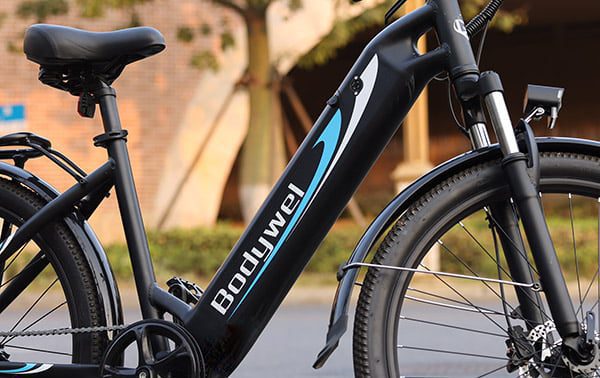
Superior Longer Range Battery
Range: The range is the distance an e-bike can travel on a single charge. The range depends on the battery’s capacity, the terrain, and the rider’s weight. Make sure to consider the range when purchasing an e-bike.
Brakes: Good brakes are essential for safety. There are two types of brakes available on e-bikes: rim brakes and disc brakes. Disc brakes are more powerful and offer better stopping power.
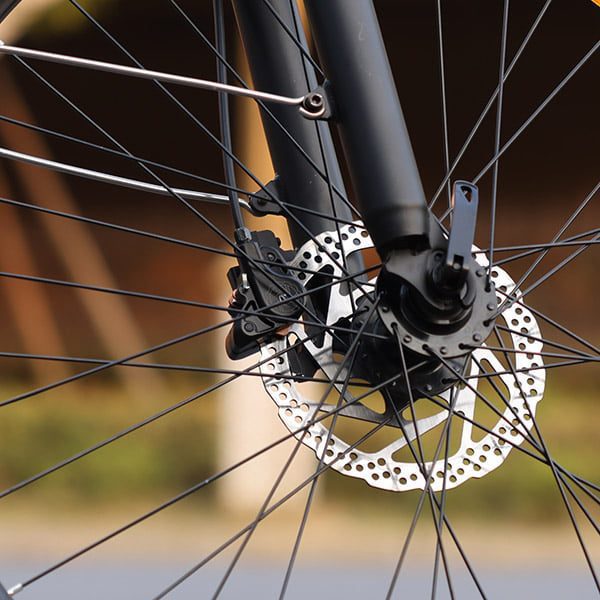
Efficient Oil Braking System
Frame: The frame of the e-bike is essential for comfort and durability. Choose an e-bike with a frame that is suitable for your height and weight.
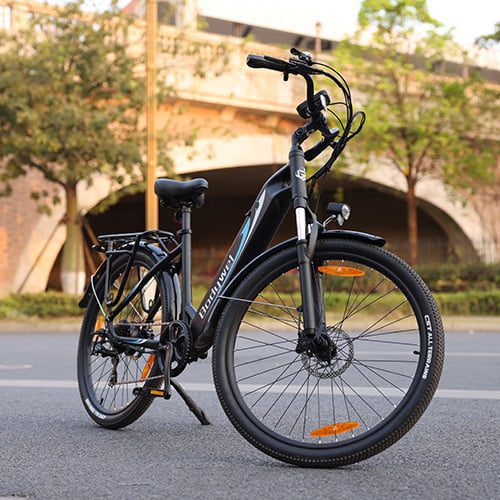
Suspension: Suspension is crucial for comfort and performance. Consider an e-bike with front or full suspension if you plan to ride on rough terrain.
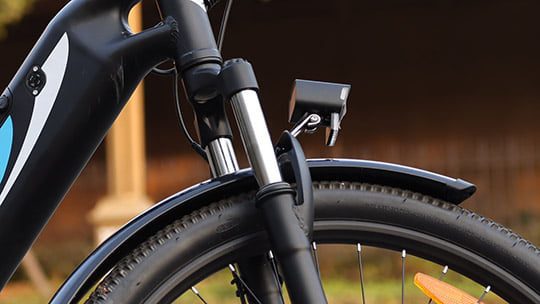
Front Fork Coil Suspension
Price: E-bikes are available at different price points. Decide on your budget and choose an e-bike that offers the best value for your money.
Warranty: Choose a reputable brand that offers a good warranty. This will ensure that you get the best possible service and support if something goes wrong.
Certification: The CE EN15194 certification confirms that the e-bike meets safety, health, and environmental protection requirements.


